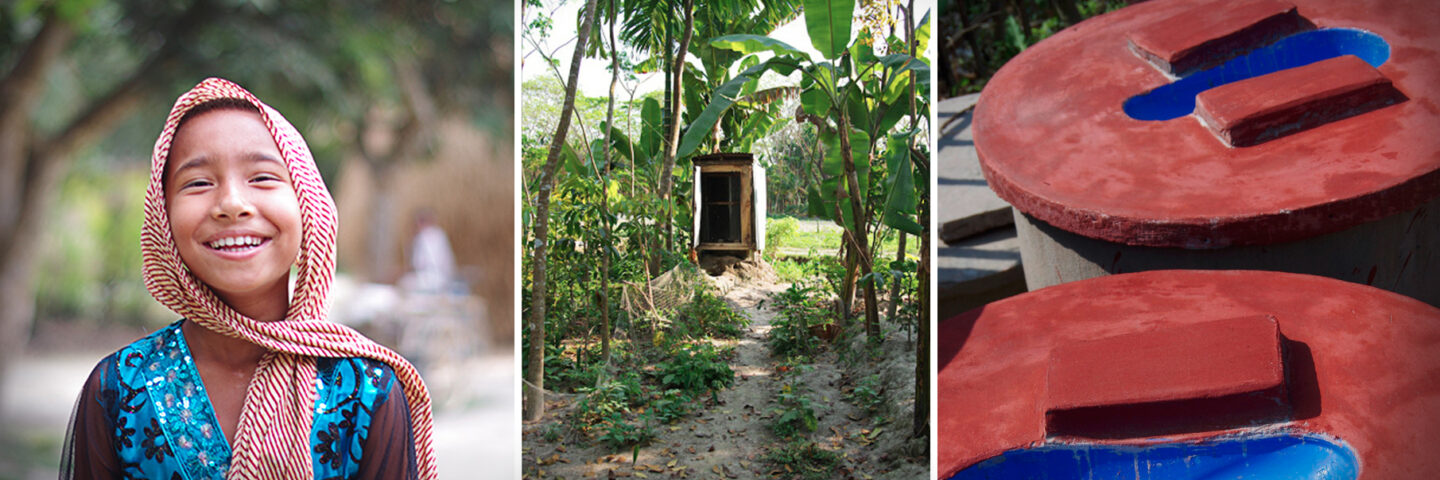
Building a business case for improved toilets
Private sector engagement in Bangladesh
In rural Bangladesh, about 40 million people live without access to adequate toilets. But RFL Plastics Ltd., a regional plastics manufacturer, hadn’t identified these households as a potential customer base until they formed a partnership with iDE. By sharing decades of lessons learned and customer insights on marketing to the rural poor, iDE helped them reduce the risk of entering this challenging market.

(Photo by Jess MacArthur/iDE)
Today, RFL is tapping iDE’s sanitation market development experience, and is poised to bring a mass-produced, affordable sanitary latrine pan to scale. The SanBox combines the quality control of mass production and the health benefits of an improved latrine.
The original product model was designed in collaboration with American Standard. iDE expanded the original pan into a suite of products to serve an expanded consumer base. This wider product offering is what convinced RFL that sanitation for the poor is a profitable and sustainable business.
Connecting all the dots
RFL is a big name in Bangladesh, with an 80-percent market share in household plastics, and products for sale in nearly every shop. Now, they’ve built serving the poor into their business strategy. iDE connected RFL to small latrine producers, who have been trained to install the SanBox according to RFL’s quality standards. These 3,500 formerly disconnected small businesses, with a presence in every district in Bangladesh, have become a network of independent retailers for RFL’s new sanitation products. They bring RFL’s products to the “last mile” consumers who want a better latrine that they can afford.
A market is only as strong as any one link in the chain that connects manufacturers and producers to buyers. For developing markets with many low-income buyers, sometimes the weakest link is not the customers, but the private manufacturing industry that does not see this group as potential customers. At iDE, we show private businesses how serving rural households can be a viable and sustainable business model.
Read More
